Catalogue of all published titles
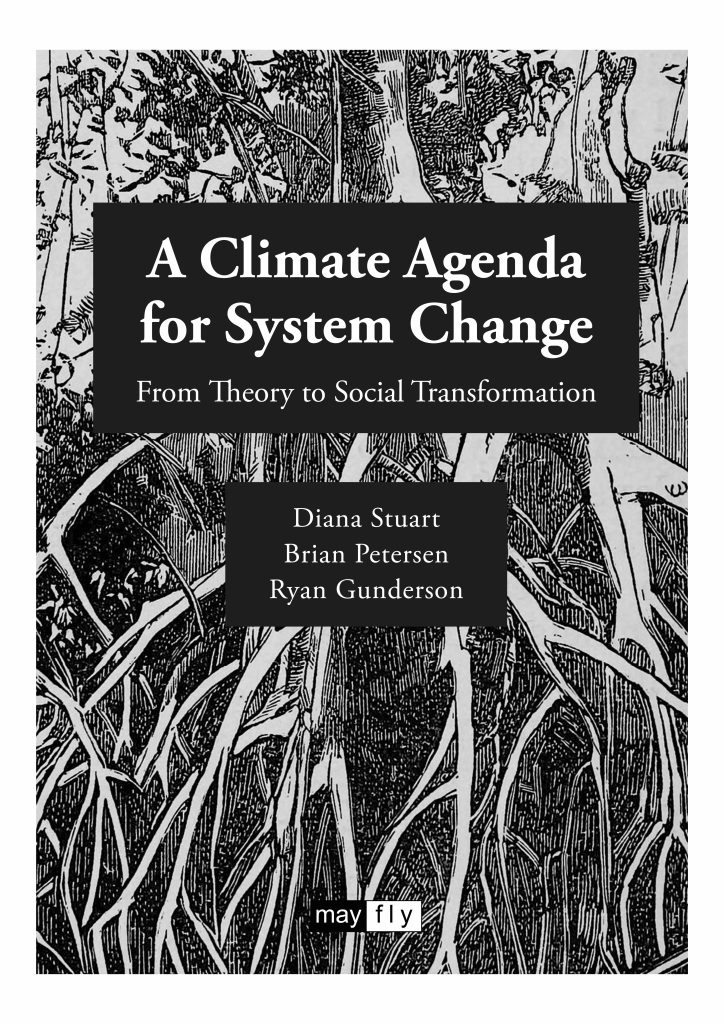
A Climate Agenda for System Change: From Theory to Social Transformation
Diana Stuart, Brian Petersen, and Ryan Gunderson
While calls for “system change” to address the climate crisis have become more common, it is important to identify what system change should entail and why. This book examines what a climate agenda for system change might include and why these policies and programs are critical to minimize global warming and enhance social wellbeing. While our current trajectory involves maintaining the status quo and relying on future technologies to mitigate climate change, a system-changing agenda has the potential to more rapidly, effectively, and justly minimize warming. Drawing from ecosocialism and degrowth, the authors identify key agenda items and why they should be prioritized. The book then focuses on how system change might take place, identifying obstacles and challenges, and motivations for persevering despite opposition.

Art and Contemporary Critical Practices
Gerald Raunig & Gene Ray (eds)
Interrogating the shifting relations between ‘institutions’ and ‘critique’, the contributors to this volume analyze the past and present of institutional critique and propose lines of future development. Engaging with the work of philosophers and political theorists such as Michel Foucault, Judith Butler, Gilles Deleuze, Antonio Negri, Paolo Virno and others, these essays reflect on the mutual enrichments between critical art practices and social movements and elaborate on the conditions for politicized critical practice in the twenty-first century.
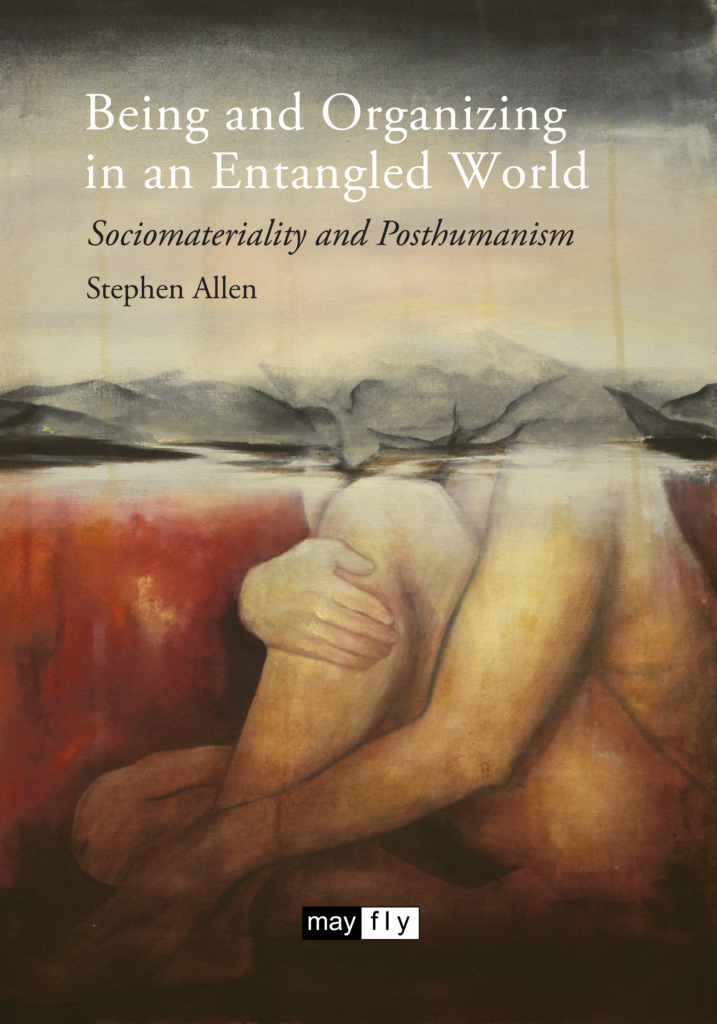
Being and Organizing in an Entangled World: Sociomateriality and Posthumanism
Stephen Allen
In the face of ecological emergencies, this book explores and experiments with the meanings and implications of being and organizing in a relational world. From a position of vulnerable optimism, it attempts to engage in accessible ways with the typically inscrutable ideas of sociomateriality and posthumanism. The perspective of entanglement that is developed, and associated dilemmas considered, involve searching for possibilities of giving voice to voiceless more-than-human others. This book is about prompting imaginings of possibilities for responsible being and collective flourishing that can be hopeful for us all.
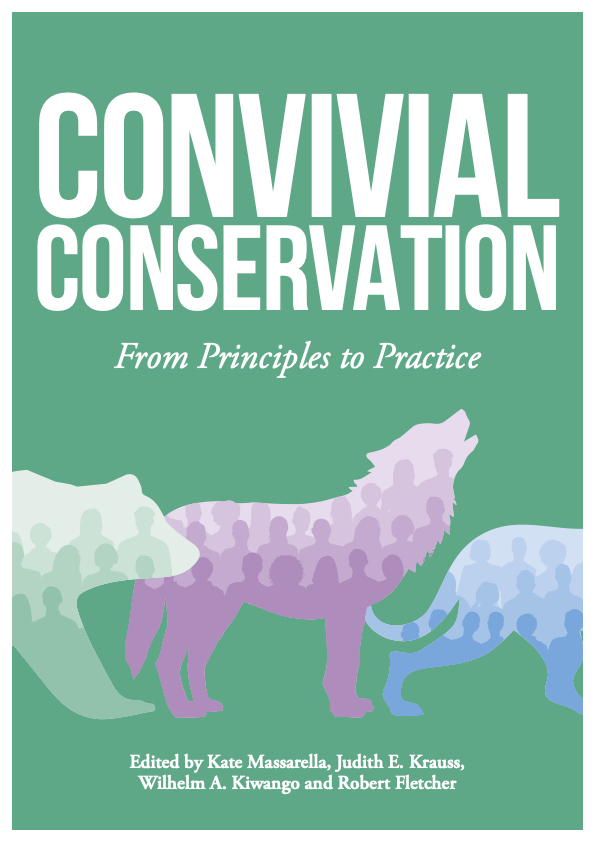
Convivial Conservation: From Principles to Practice
Kate Massarella et al (eds.)
Drawing on a rich mix of perspectives and case studies centering on human-wildlife interactions, the authors demonstrate the potential for transformation in biodiversity conservation that supports human-wildlife coexistence.
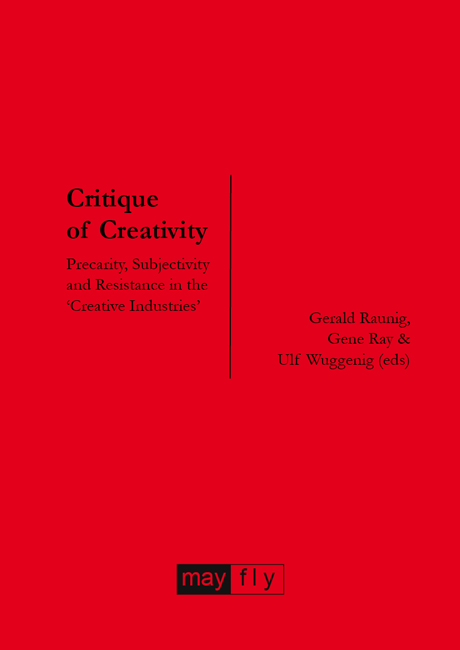
Critique of Creativity: Precarity, Subjectivity and Resistance in the ‘Creative Industries’
Gerald Raunig, Gene Ray and Ulf Wuggenig (eds)
The essays collected in this book analyze this complex resurgence of creation myths and formulate a contemporary critique of creativity.
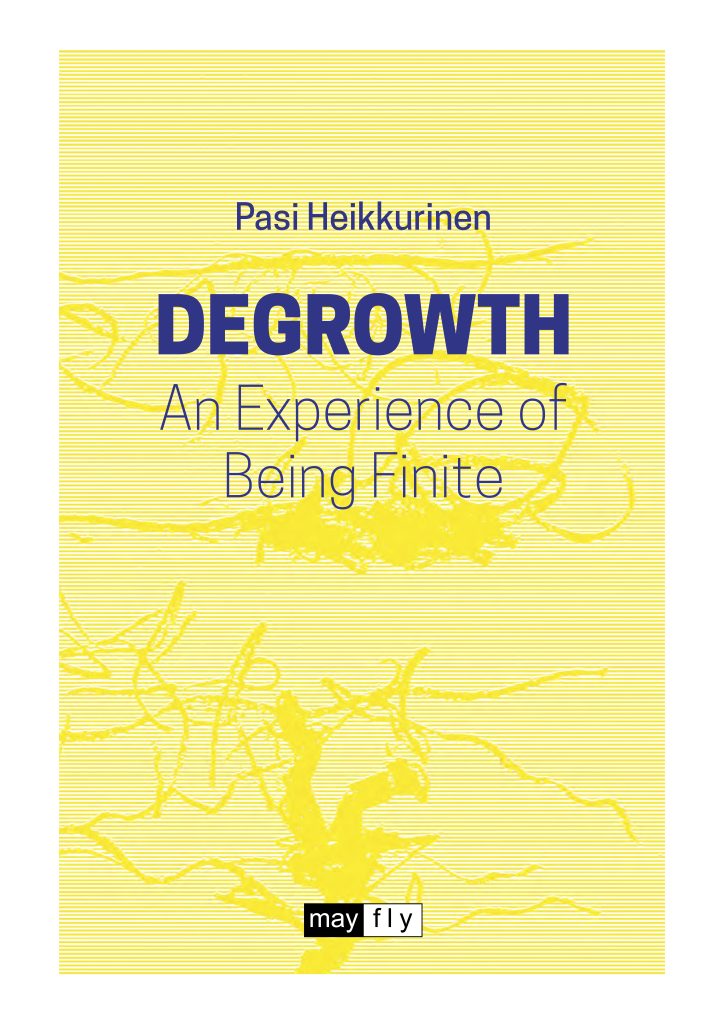
Degrowth: An EXPERIENCE OF BEING FINITE
Pasi Heikkurinen
Degrowth is an experience. It is about fathoming that being-in-nature is finite. Experiencing finitude offers the long-awaited theoretical foundation for the degrowth movement. In this book, Pasi Heikkurinen argues that we must understand limits ‘from within’ in order to effectively reduce matter-energy throughput. He coins the metabolic cutback as the minimalist definition of degrowth. He also provides a lucid critique of how technology, transformations, and nature are perceived in cultures of growth. To overcome the shortfalls of our perception, experiential notions of releasement, metamorphosis and the core of nature are propounded. Heikkurinen calls for a collective experience of degrowing in practice while avoiding overinclusive rhetoric.
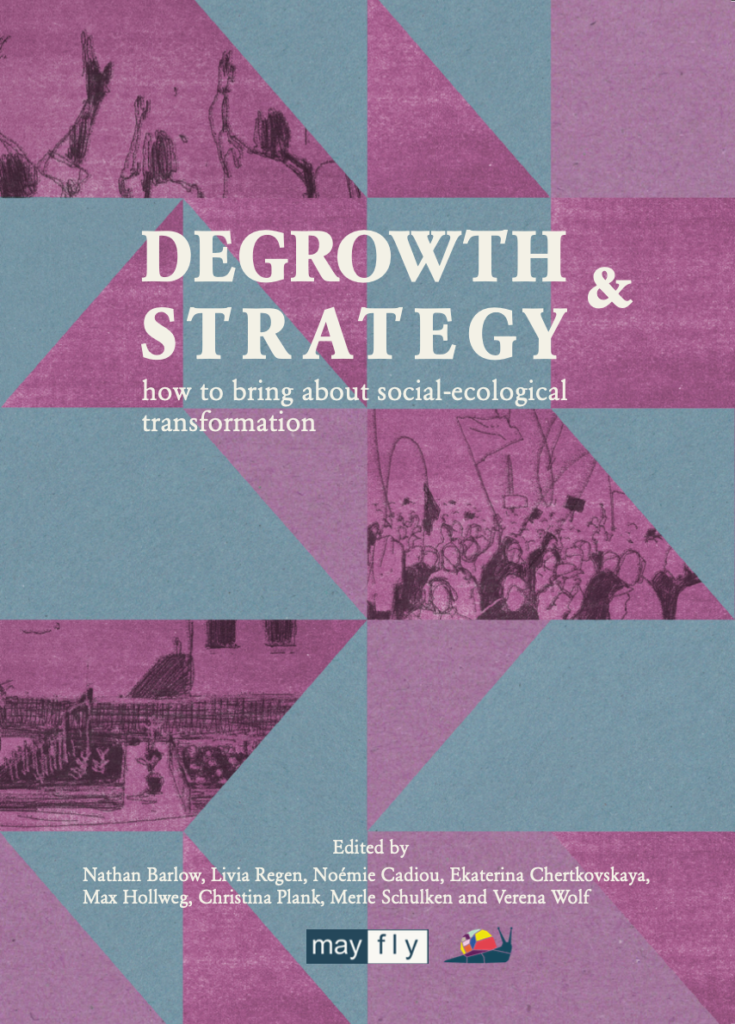
Degrowth & Strategy: how to bring about social-ecological transformation
Nathan Barlow et al (eds.)
Degrowth is a counter-hegemonic movement that has the ambitious aim of transforming society towards social and ecological justice. But how do we get there? That is the question this book addresses. Adhering to the multiplicity of degrowth whilst also arguing that strategic prioritisation and coordination are key, Degrowth & Strategy advances the debate on strategy for social-ecological transformation. It explores what strategising means, identifies key directions for the degrowth movement, and scrutinises strategies in practice that aim to realise a degrowth society. Bringing together voices from degrowth and related movements, this book creates a polyphony for change going beyond the sum of its parts.
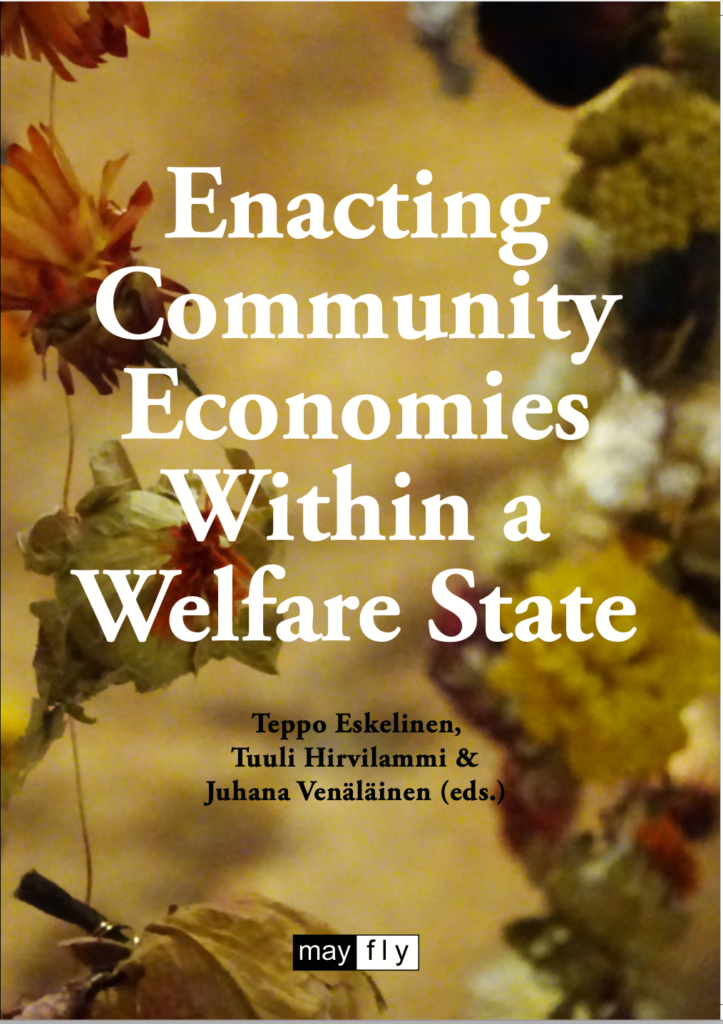
Enacting Community Economies Within a Welfare State
Teppo Eskelinen, Tuuli Hirvilammi and Juhana Venäläinen (eds.)
This book presents a number of empirical case studies of community economies in the context of a Nordic welfare state to better understand the potential of community economies and the interaction and friction with state governance, and more generally the conditions in which community economies and Nordic welfare states can co-exist and cooperate.
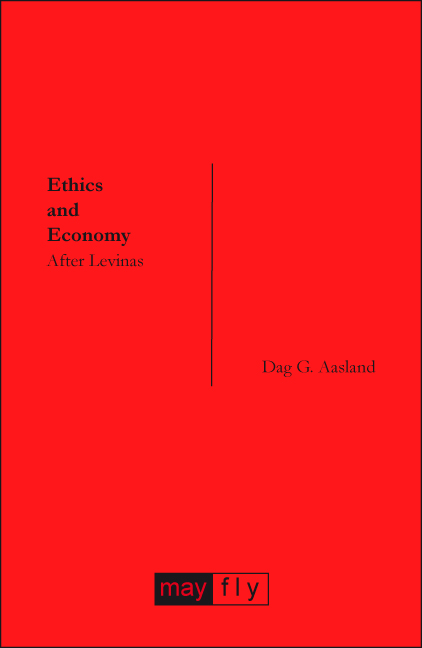
Ethics and Economy: After Levinas
Dag G. Aasland
This elegantly written text offers a clear statement of the importance of a Levinasian ethics of the Other for thinking through and beyond the limits and persistence of economic rationality. This book invites readers to step beyond the enclosure of business ethics and takes us beyond “business as usual” but also beyond “ethics as usual”.
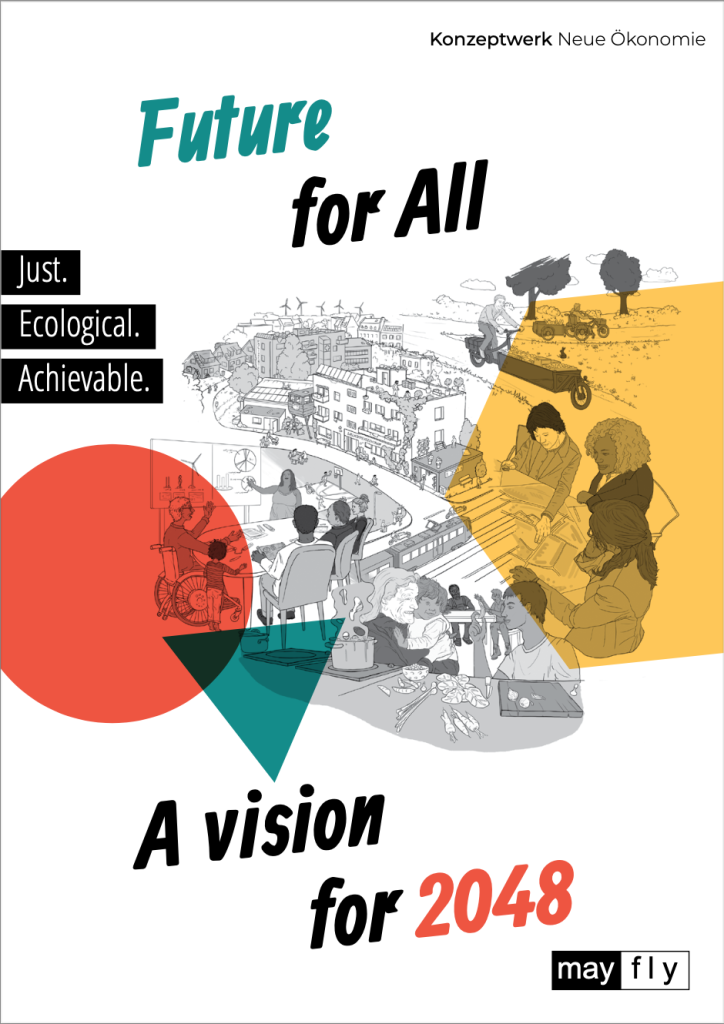
FUTURE FOR ALL: A VISION FOR 2048
Kai Kuhnhenn, Anne Pinnow, Matthias Schmelzer, and Nina Treu
Imagine it’s the year 2048. How do you get around? What do you eat? How do you spend your time? How and what do you work? And beyond your own situation: What could this future look like? How is the economy organized? How can it be just, ecological and achievable – for everyone?
This book shows possible answers to these questions. In view of diverse crises – climate catastrophe, increasing inequality, economic crises – more and more people are embarking on the search for a completely different economic and social system. But what can this look like? Based on the results of twelve future workshops with almost 200 pioneering thinkers, Future for all presents a vision for the year 2048.
The Vision 2048 creates images of a desirable future beyond capitalism that is viable and achievable, that stimulates critical debate, and that inspires courage and hope.
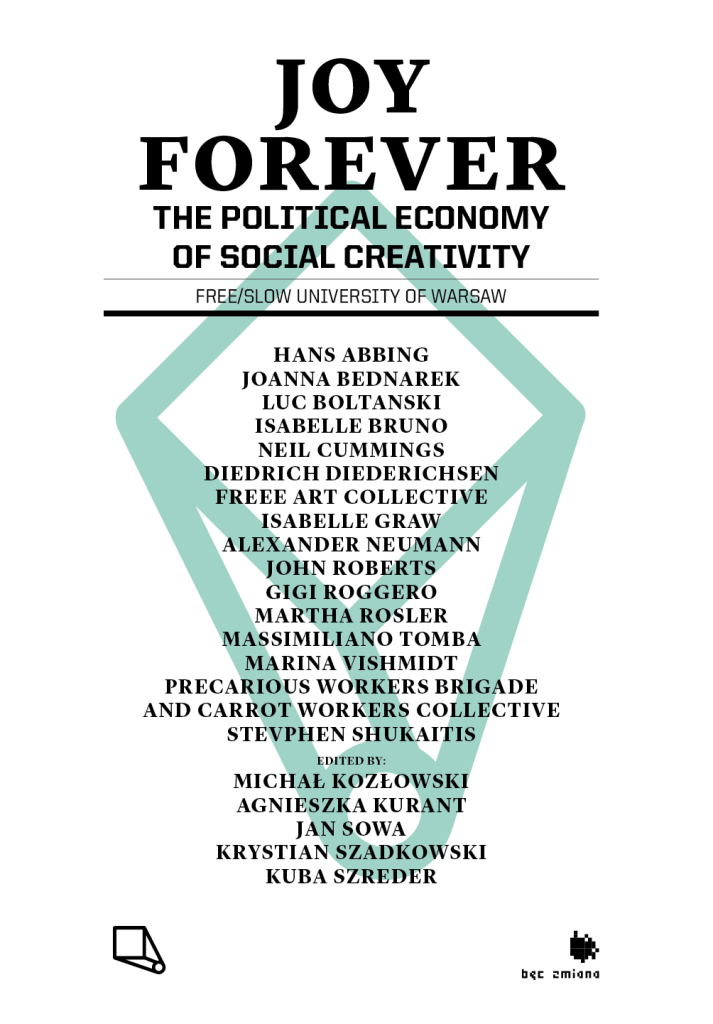
Joy Forever: The Political Economy of Social Creativity
Michał Kozłowski, Agnieszka Kurant, Jan Sowa, Krystian Szadkowski and Jakub Szreder (eds)
The aim of F/SUW’s publication is to scrutinize the false promises of distributed creativity as an ideology of cognitive capitalism. The authors devote themselves to critical examination of the structural links between art, creativity, labour and the creation of value under contemporary relations of production.
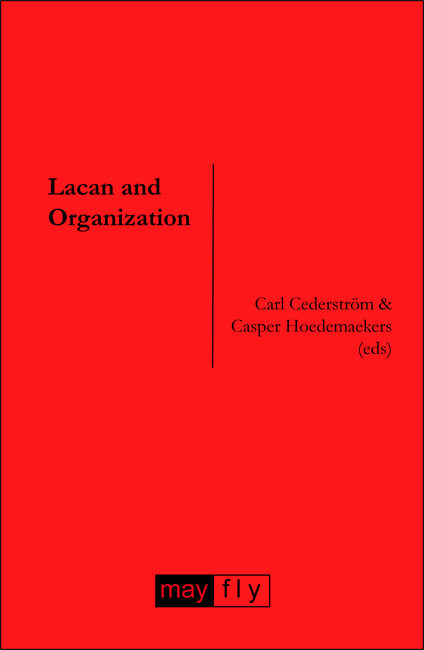
Lacan and Organization
Carl Cederström & Casper Hoedemaekers (eds)
In this edited collection, a number of organizational scholars have made common causes with political theorists and psychoanalysts. Together they explore the many intersections of Lacan and organization. The contributions address a series of pertinent questions: What are the new templates for control in the workplace? How is subjectivity produced in contemporary organizations? And how can a Lacanian reading of contemporary work politics render new insights into resistance and ethics?
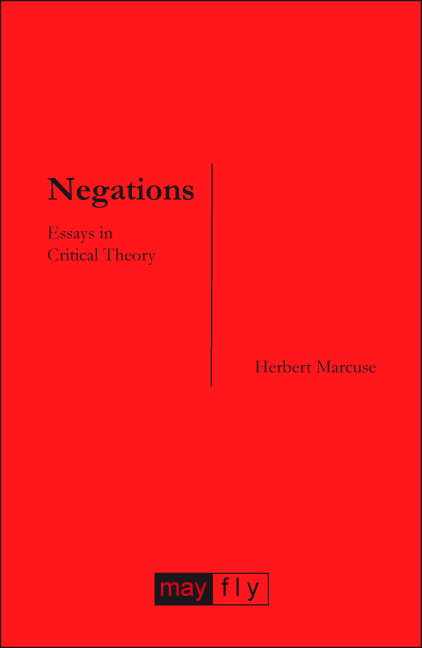
Negations: Essays in Critical Theory
Herbert Marcuse
In a series of essays, originally written in the period stretching from the 1930s to 1960s, Marcuse takes up the presupposed categories that have, and continue to, ground thought and action in our administered society: liberalism, industrialism, individualism, hedonism, aggression. This book is both a testament to a great thinker and a still vital strand of thought in the comprehension and critique of the modern organized world.
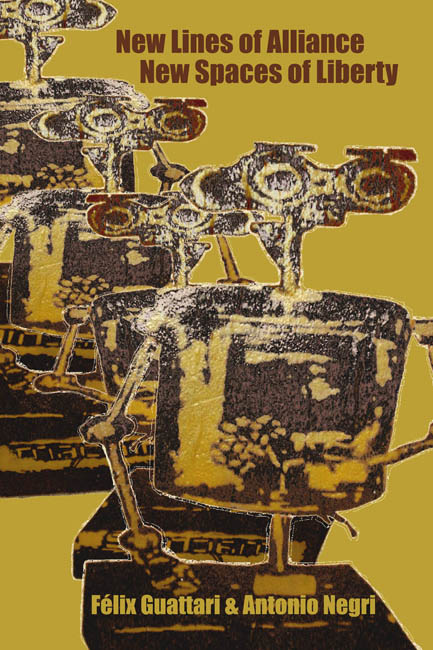
New Lines of Alliance, New Spaces of Liberty
Félix Guattari and Antonio Negri
“The project: to rescue ‘communism’ from its own disrepute. Once invoked as the liberation of work through mankind’s collective creation, communism has instead stifled humanity. We who see in communism the liberation of both collective and individual possibilities must reverse that regimentation of thought and desire which terminates the individual…”

No Love in War: a story of Christian Nationalism
Valerie H. Hobbs
This book is an auto-ethnographic account of the everyday realities of life without love, among those who pursue war. It documents the ways that Dominionist theologies (the recovery of a theocratic state, with Christians in key positions of influence in all institutions) manifest in interpersonal relationships, resulting in manipulative, often violent misogyny, racism and homophobia. It follows the disordered and erratic trajectory of a woman’s life – the author’s life – moving through three concentric circles of influence in the Dominionist movement, from extremist middle to outer, softer rim, focusing in particular on the New Apostolic Reformation, Christian Reconstructionism and Neo-Calvinism in the United States.
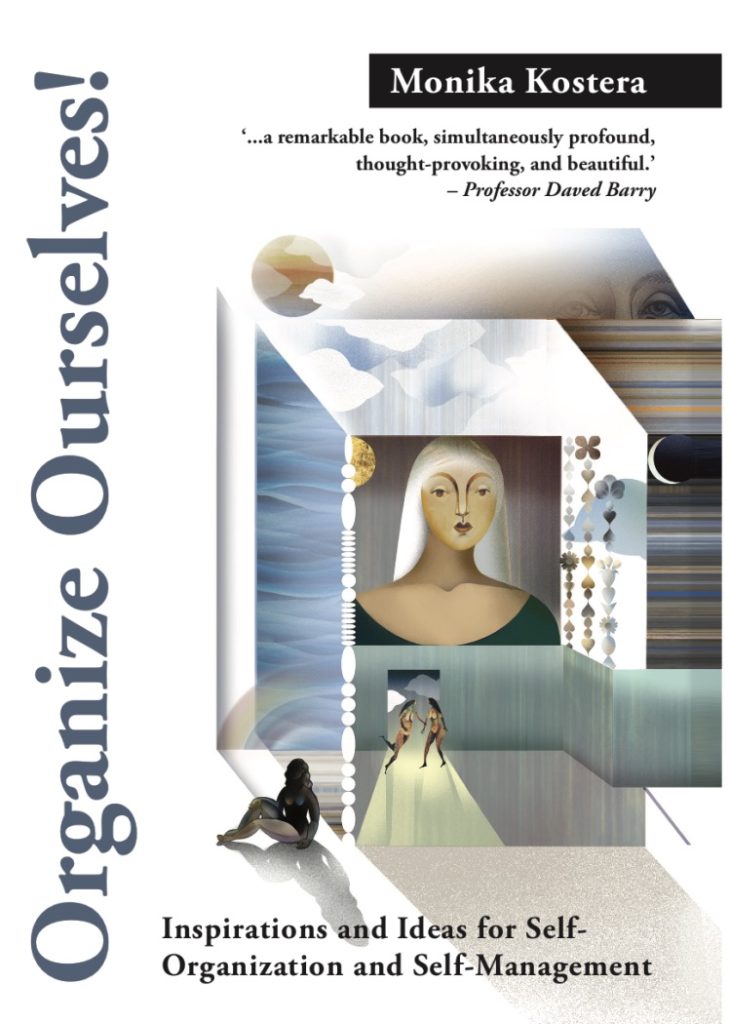
Organize Ourselves! Inspirations and ideas for self-organization and self-management
Monika Kostera
This book proposes organizational ideas and practices born out of the archetype of the commons, as well as tools reclaimed, renewed, and recycled from the vast repository of modern management models. Capitalism is failing and we need to find a better way to organize ourselves, more humanely as well as in accordance with the ecosystem.
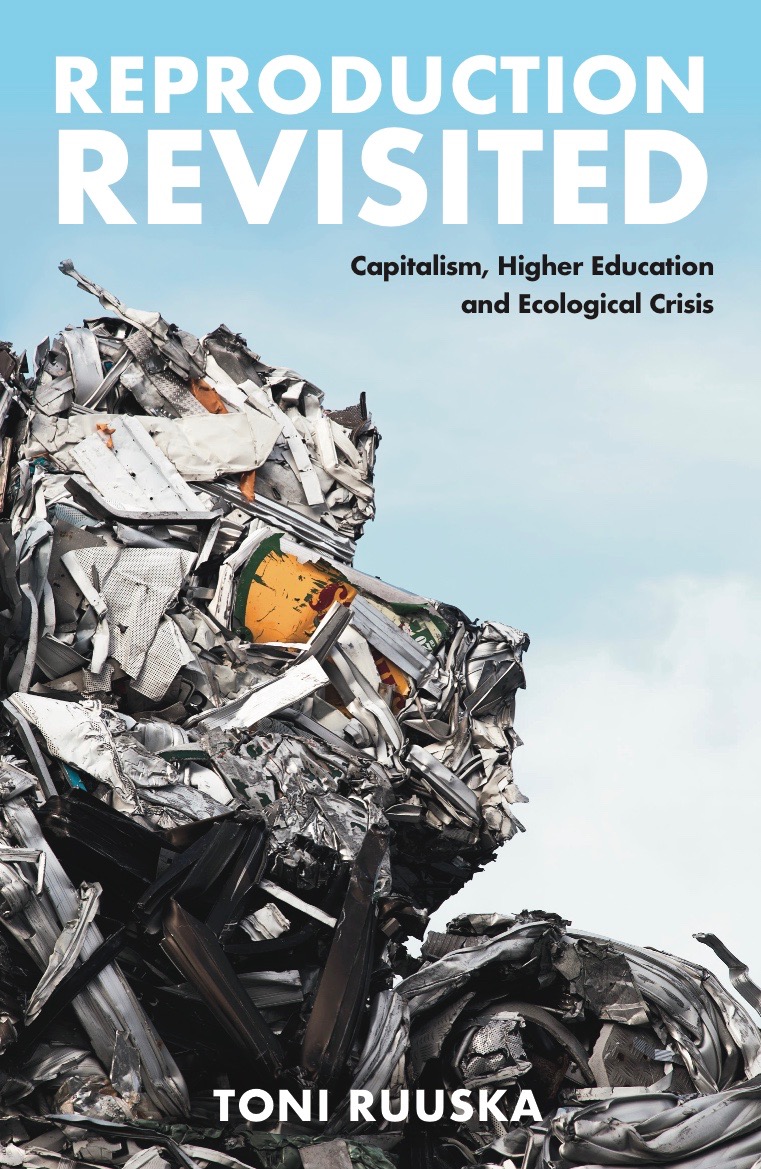
Reproduction Revisited: Capitalism, Higher Education and Ecological Crisis
Toni Ruuska
Capitalism is ecologically irredeemable. It simply cannot be fixed. This is because capitalism is based on endless capital accumulation, entailing growth in material throughput, whereas the planet Earth is finite. From this conclusion of ecological Marxism, this book continues to theorise how capitalism is reproduced in the 21st century. It is argued that the logic of capital and production based on the profit motive, competition and productivity enhancements is not enough to reproduce capitalism, but a wide variety of national and transnational institutional arrangements, and repressive and ideological state apparatuses are needed as well to secure and protect its continuation.
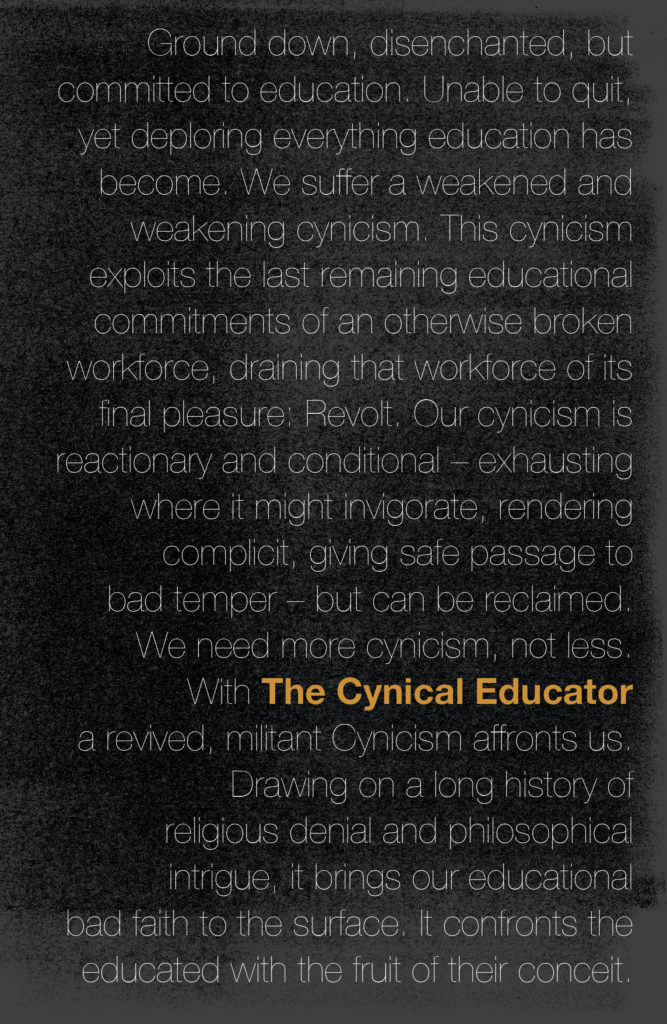
The Cynical Educator
Ansgar Allen
With The Cynical Educator a revived, militant Cynicism affronts us. Drawing on a long history of religious denial and philosophical intrigue, it brings our educational bad faith to the surface. It confronts the educated with the fruit of their conceit.
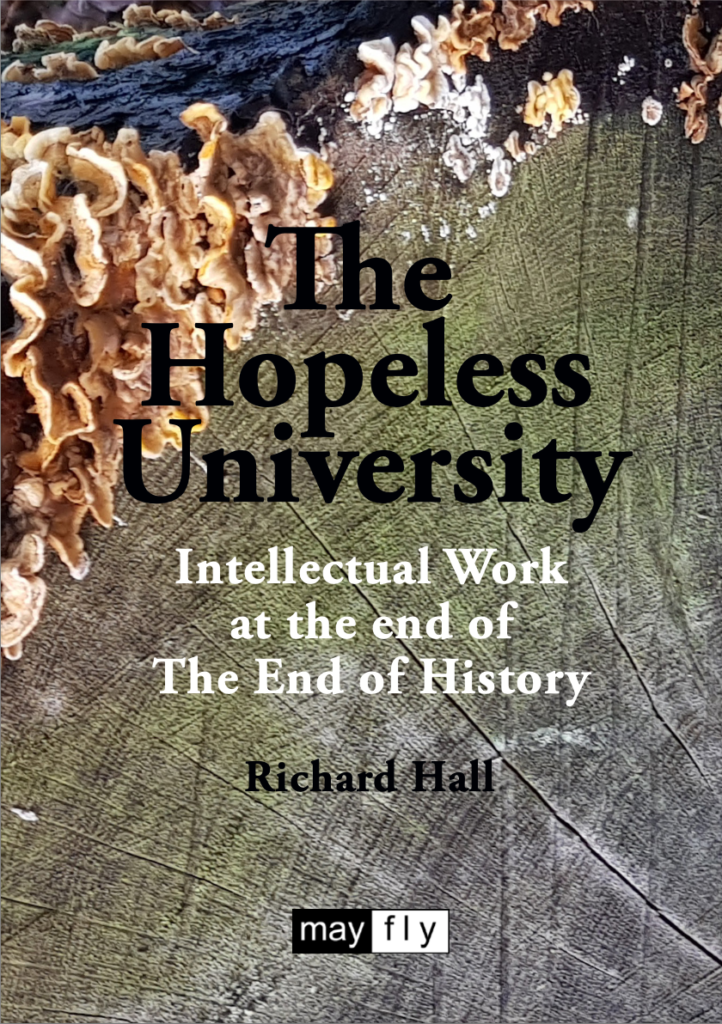
The Hopeless University: Intellectual Work at the end of The End of History
Richard Hall
The Hopeless University examines the structures/forms, cultures/pathologies and activities/methodologies of the University, in order to question what kind of higher learning we yearn for and deserve. In looking at the ways in which the University represents our entangled, intellectual existence, Richard Hall asks whether we might compost the structures, cultures and activities that engender hopelessness and helplessness.
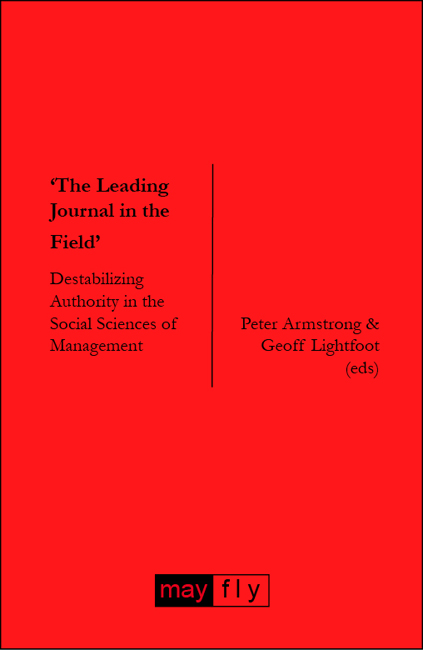
The Leading Journal in the Field: Destabilizing Authority in the Social Sciences of Management
Peter Armstrong & Geoff Lightfoot (eds)
The authors in this volume turn to the practice of practical criticism to destabilize authority in the social sciences of management, and to assert that it must be possible for criticism of scholarly outputs – particularly those of established authority-figures – to be heard and debated.
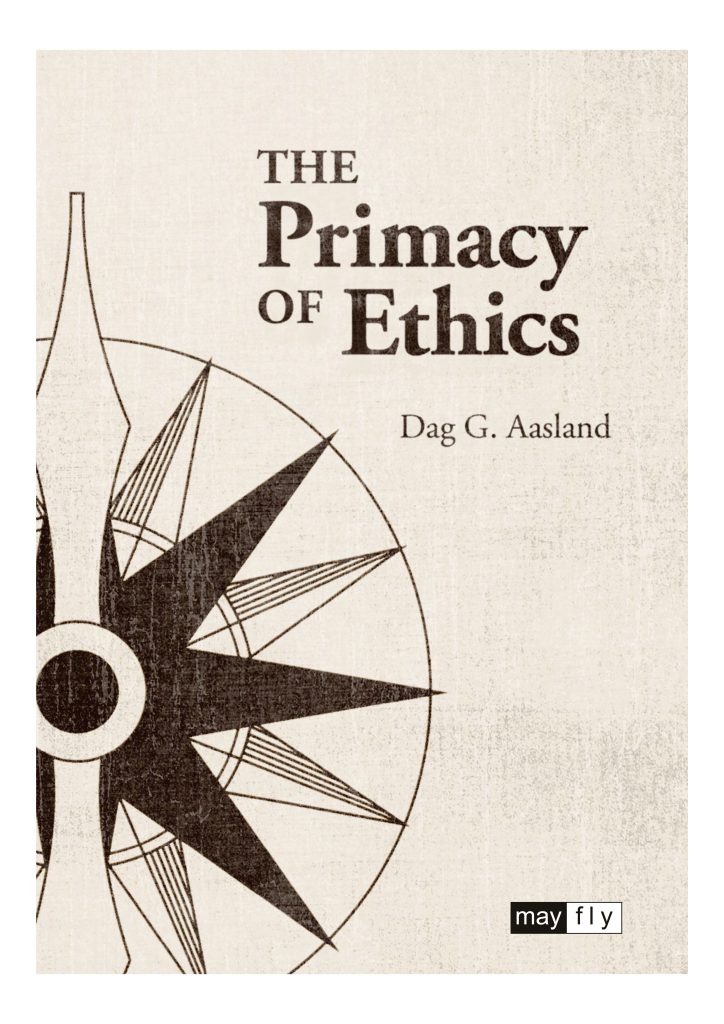
The Primary of Ethics
Dag G. Aasland
New insights into the early development of the brain and the emergence of consciousness challenge many of our preconceptions about the connection between body and mind. This book explores the implications of this knowledge, revealing how a fundamental ethic is inherently embodied in each of us before any words are formed.
The examination of the primacy of ethics in this book reveals that ethics precedes not only all words but also establishes the necessary foundation for the thinking subject. As thinking and acting humans, we exist within an interpersonal context, and basic ethics emerge through interactions with others. The book illustrates how narratives bind us together, correcting and supplementing a rational language that, when used unilaterally, can create distance and even work against its intended purpose.
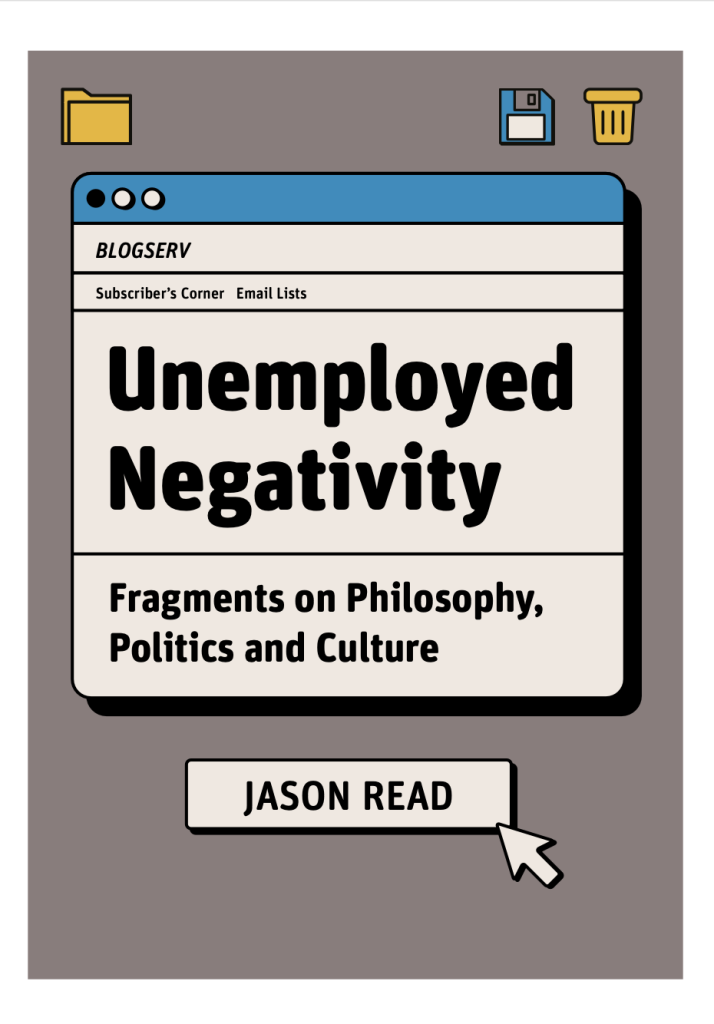
Unemployed Negativity: Fragments on Philosophy, Politics, and Culture
Jason Read
Unemployed Negativity is a blog kept by Jason Read for over eighteen years. During that time, it has been a reflection on everything from the films of Jordan Peele to the relevance of Marxist criticism for contemporary society. It has reflected on such cultural transformations as the lasting legacy of Shark Week to the rise of conspiracy theories in contemporary politics. In doing so it has persisted in one central aim, to make philosophy a living reflection on the present rather than a contemplation of the past. This is a collection of its best posts, revised and expanded for publication.
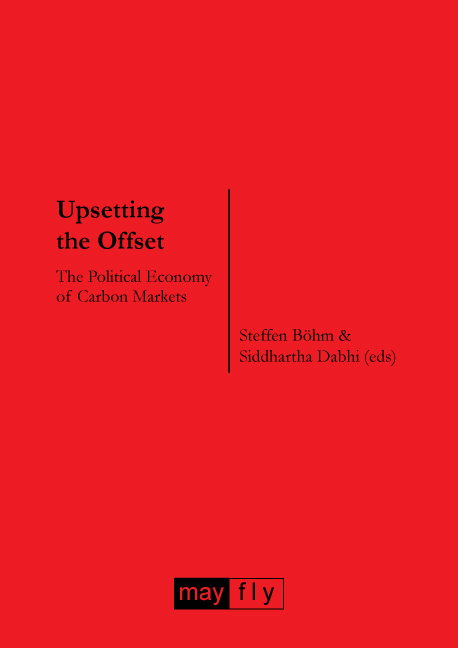
Upsetting the Offset: The Political Economy of Carbon Markets
Steffen Böhm & Siddhartha Dabhi (eds)
Upsetting the Offset engages critically with the political economy of carbon markets. It presents a range of case studies and critiques from around the world, showing how the scam of carbon markets affects the lives of communities. But the book doesn’t stop there. It also presents a number of alternatives to carbon markets which enable communities to live in real low-carbon futures.
